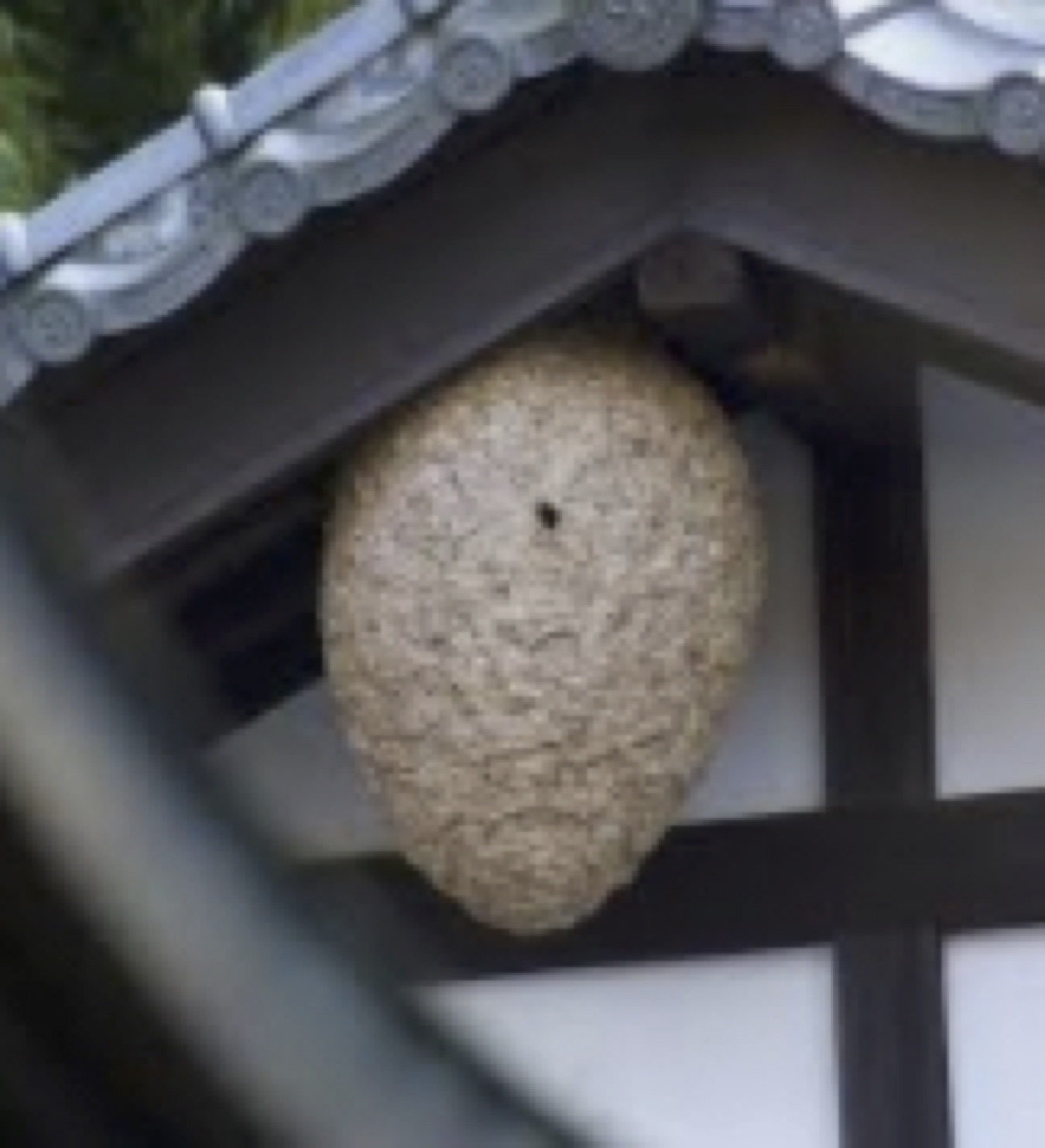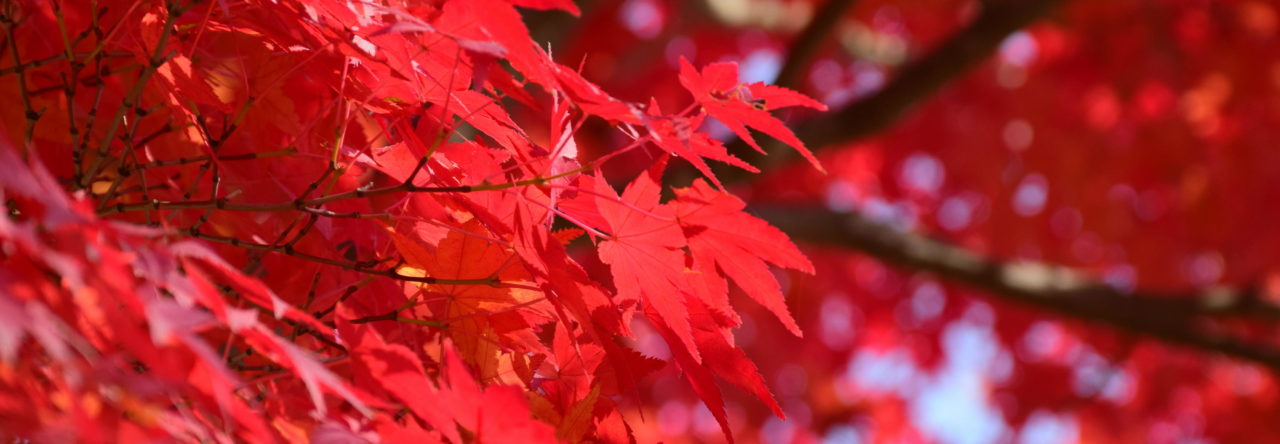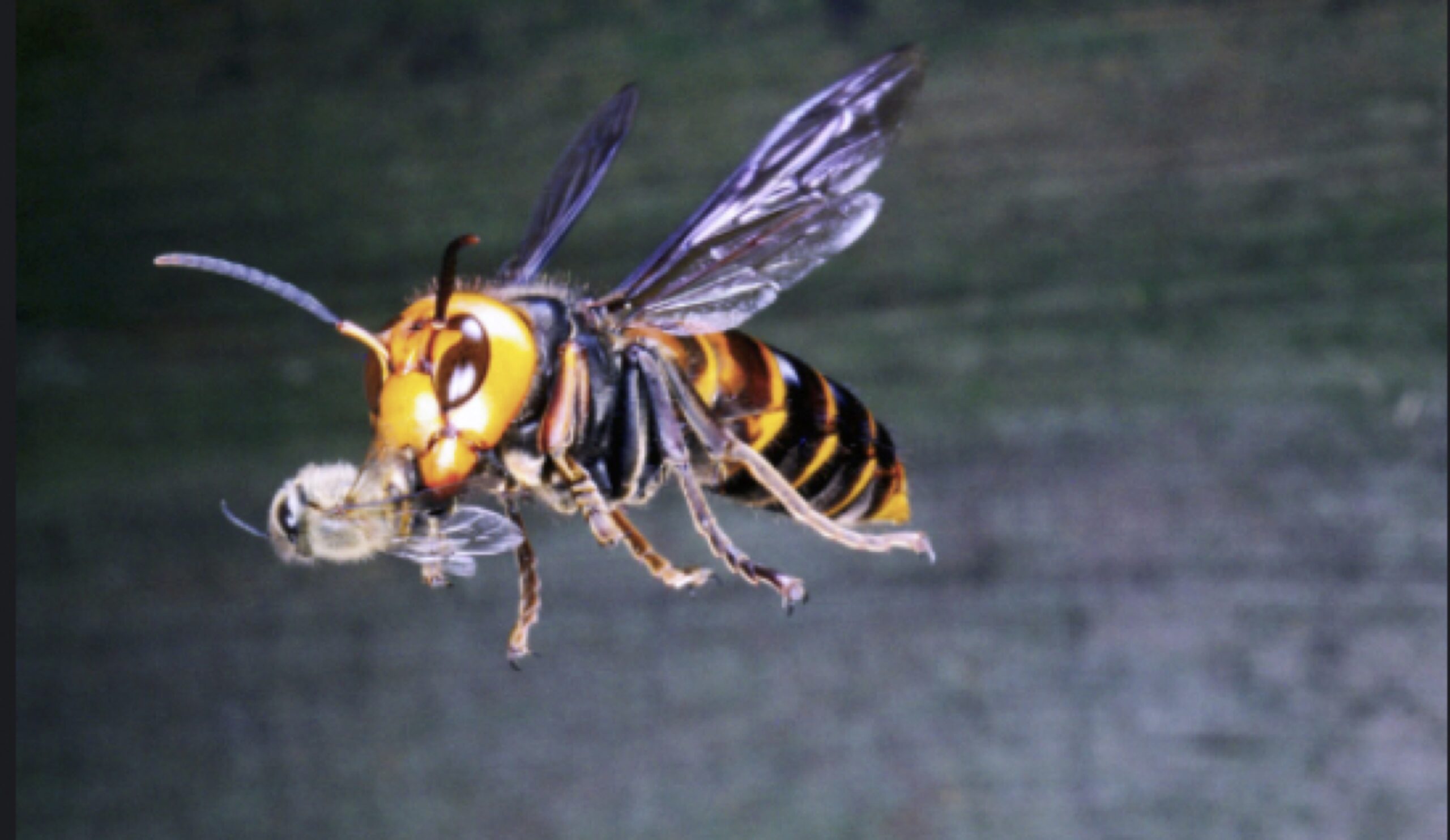There is enormous hype in American media right now concerning vespa mandarina, known in Japan as susume-bachi, AKA ‘sparrow wasps.’ American media has made up a new name for them ‘Murder Hornets.’ I frequently saw them in parks and mountains in Japan–saw one once take down an enormous swallow-tail butterfly on the wing – and I was one-degree of separation from a couple of marvelous events concerning them.
Who Owns the Mountain?
Shortly before I left Japan, my Araki-ryu instructor and I stayed at a mountain inn, deep in Yamanashi prefecture. The ryokan specialized in martial arts training, and had three dojos on the grounds. They were minimal: framed buildings with no heat or insulation, but each with an expanse of tatami inside. My instructor and I went through the entire curriculum of the school, both reiterating the kata one last time, and also engaging in a lot of freestyle practice that emblazoned itself deep in my brain–every victory over my teacher, every defeat (far more frequent) became the seeds of the next decades of my own training.
In any event, most of the rooms were taken up by a karate club. I think there were approximately twenty young men and women, appearing to be university age. Their instructor was about forty, and he affected a yakuza style, both in clothes and manners–he screamed and bellowed at them in the evening, in the morning, and certainly during practice.
One thing I had noticed when we checked in was a susume-bachi nest, hanging under the eaves of the roof. Not seeing any activity, I assumed it was old and abandoned. 
One morning, the karate instructor slammed open his window, and as he bellowed to his students that they had five minutes to get up, a sparrow wasp flew in and stung him on the face. The bellowing changed pitch. He was apparently able to brush it off his face back outside, so he only got stung once, and he slammed the window of his room shut. We were already eating breakfast when he came storming in to the dining hall, yelling at the owner of the ryokan, ranting how he put his guests at risk and look at this injury, it could have taken out his eye, and what was he going to do about it. The inn owner just stood quietly, looking up at the much bigger man and when the wounded warrior finally stopped yelling, he said, “This is their mountain and we are just guests. If you don’t know how to behave as a guest, then go back home to your city.” Took the wind right out of him. The next couple days were mostly silent. We’d see the karate club, the students eating quietly, then filing out to go to what was now rather lifeless practice, with their shaven-headed teacher, one side of his face festering and swollen, pouting quietly at the table alone.
Could You Do As Well?
Andrew Weil came to Japan. Perhaps you know of him, a rather well-known physician who specializes in inter-disciplinary medicine, combining allopathic and a variety of types of alternative medicine. Actually, he came to Japan a couple of times.
There was a Japanese artist, whom I only knew as Aku-san (‘Mr. Bad Boy’). [His real name was 阿久津 Akusu – but everybody knew him as 悪-さん]. He was an older man, living in a small terraced farm deep in the mountains outside Nara. He had kind of a commune there–two wives, actually, who got along quite well–close by a small mountain village. There was a small period of adjustment between the local farmers and his micro-village. [They learned their place when they took to marching down a mountain path to the local hot spring, already nude. No one seemed to be using it, and they thought themselves unobserved. One day the naked hippies were greeted by a contingent of farmers, armed with mattocks and hoes. The leader simply said, “When you are in the village, follow the village rules.” They turned and left, and after that, Aku-san’s people wore clothes until they got to the hot spring.]
Anyway, things were going well for him–he was a renowned artist–but then he got busted for growing marijuana. It was for personal use, but Japanese law regards marijuana as an enormously socially destructive drug, as bad if not worse than methamphetamine or cocaine. There is no doubt that the marijuana high is antithetical to the dominant culture of postwar Japan. In any event, Aku-san was potentially looking at ten years prison time.
His lawyer requested that Andrew Weil, author of several books on psychoactive substances, come to Japan to testify on Aku-san’s behalf as an expert witness regarding marijuana’s effects on the human body. It is my guess that a kind of ritual was thereby satisfied–having a foreign expert testify required a response from the court which was, in essence, “By having one so truly eminent in his field come all the way to Japan moves this up from a tawdry drug case to something significant. But you have insulted the community where you have made your home. If you provide a symbolic apology, you can will be released without prison.” Aku-san painted two forty foot long, twenty-feet high sumi-e of the local mountains, among the most beautiful works of art I have ever seen, placing one in the local government office, and the other in the local gymnasium. So home he was.
Some years later, Andrew Weil was back in Japan. Among his accomplishments, he is a mycologist, and he would arrange ‘mushroom tours,’ where he and a group of mycophiles would go to a country to do the mushroom equivalent of bird-watching . . . plus, if you knew what you were doing, you could make a meal of your finds. Aku-san had said to Andrew at the end of his court case that, “If you are ever in the area . . .” So Andrew was back in Japan. He dropped by Honyarado, a tiny ‘new-age’ bookstore, where my wife happened to work. He mentioned that he’d love to go visit Aku-san after his tour was over, but it was deep in the country and he spoke no Japanese and one thing led to another and my wife volunteered me as an interpreter, which was one of the nicest things she’d ever done for me.
So, Andrew and I went to the mountains. We had a lovely time at Aku-san’s, Andrew and I walking up one very long mountain trail that was associated for millennia with shugendo. It was a very ‘zen’ walk: In the beginning, all I could see was trees. Andrew kept pointing out fungi here and there, and by the end of the hike, I no longer saw trees–all I could see was mushrooms. They were everywhere, but up to that point, my eyes had just skated over and past them, not even noticing.
In the evenings, we ate well and partied until late at night, talking story. And it was then that Aku’s wife (the elder) told the story of ‘Aku and the Sparrow Wasps.’ After his suspended sentence conviction, he started farming marijuana again . . . his name was Mr. Bad Boy for a reason, just one or two plants hidden among corn and other tall plants and he was tilling the soil with a kuwa, a Japanese hoe. And then he felt a crunch, followed by a roar like an outboard motor burning itself out when the propellor jams in the mud. Yep, like yellow jackets, susume-bachi nest underground as well.
Aku-san was wearing a hanten. This is a short jacket made of thick quilted or woven material, fairly loose, almost like a keikko gi, but usually shorter. At the moment of the crunch of the kuwa, Aku-san dropped the hoe, grabbed the hem of the hanten at the back, and flipped it over his head, dropping to a ball on the ground. In that fraction of a second, he was stung once on the face and once on the hand. The hornets were either brushed off in the motion, or flew away. Aku-san hunched over in a fetal position, his face in the earth, the hanten over his head, shoulders and hands. It was a cool fall day, and he had on fairly thick clothing underneath, khaki or denim, but nothing impervious to the hornets. His wife said that he was covered by hundreds of them, and he huddled without moving, face into the soil, until the middle of the night, when the susumebachi returned to their broken nest to repair it. His wife shined a flashlight on him every once in awhile, the rest of his ‘family’ huddled in the house in worry. Finally, she told him from the house that he was apparently free. Maintaining a nearly fetal position, the hanten over his head, he slowly crawled out of the field back into his house.
Throughout the story – with me translating for Andrew Weil, by the way – Aku-san just sat laughing, sipping his home-made akebi fruit wine, and truth be told, smoking an enormous spliff.
And I think that in my entire life, I never heard of a more perfect physical action, decided and enacted in a fraction of a second, and then more perfect stillness, his nerves unbroken, between poles of near airless claustrophobia and the weight and roar of hundreds of giant hornets all over his body, un-stung, surely, because Mr. Bad Boy knew how not to move.
No part of this material may be reproduced in any form or by any means, electronic or mechanical, including photocopy, without permission in writing from the author. However, you are welcome to share a link to this article on such social media as Facebook, LinkedIn or Twitter.
Purchase Ellis Amdur’s Books On Budo & De-escalation of Aggression Here
Note: If any of my readers here find themselves grateful for access to the information in my essays, you can express your thanks in a way that would be helpful to me in turn. If you have ever purchased any of my books, please write a review – the option is there on Amazon as well as Kobo or iBook. To be sure, positive reviews are valuable in their own right, but beyond that, the number of reviews bumps the algorithm within the online retailer, so that the book in question appears to more customers.


BIALOKUR NICOLAE GOTHARD
WOW !
Mark Spada
Speaking of Yamanashi-ken, when Cynthia and I lived in Kōfu I would often encounter these beautiful hornets during my morning walk with our Bengal cat, Kuma. I learned to be vigilant during these times, as Kuma enjoyed thoroughly exploring all of the hedgerows in our neighborhood, each fraught with potential bites and stings. But as we were prone to neither bellowing nor excavation the hornets merely investigated us the way a pod of dolphins might a pair of swimmers. Yet up close, inches away from my face, the power of these insects was palpable. As with your first story, they were another reminder that I was only a guest in this land, and should always act accordingly.
These were great stories. Thank you for sharing.
Mark Spada